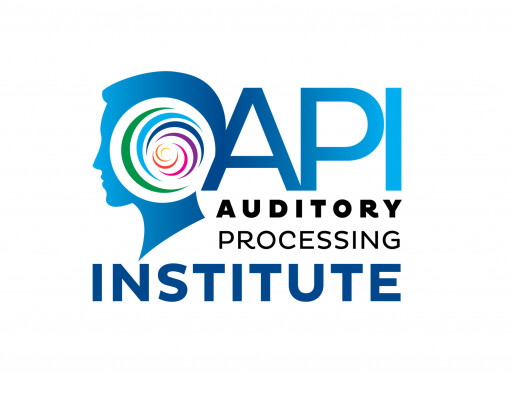
SUNSHINE COAST, Australia, April 5, 2023 (Newswire.com) - Long COVID "brain fog" symptoms are linked to auditory processing disorder (APD), an underdiagnosed neurological disorder, suggests a new study from the Auditory Processing Institute of Queensland, Australia, published today in The Hearing Journal. Authored by renowned audiologists Dr. Robert DiSogra and Dr. Angela Loucks Alexander, whose recent TEDx Talk generated more than one million views, the study found that patients can be treated effectively with existing interventions. Unfortunately, APD symptoms can easily be confused with other hearing or neurological issues, so people with these symptoms should proactively talk to their doctors about getting APD testing.
APD occurs when a patient's brain has trouble understanding what they hear into usable information, making it difficult to understand and communicate with others. Untreated patients can quickly suffer serious consequences, including an inability to connect with others, strained relationships, poor job performance, and depression.
"We've seen an uptick in patients whose symptoms started after a COVID-19 diagnosis but testing for an auditory processing disorder is rarely recommended. As a result of this study, we can confidently tell people with "brain fog" symptoms to get tested for APD," says Dr. Angela Loucks Alexander, Director of the Auditory Processing Institute. "Early testing is a simple step that would have saved many of our patients a lot of distress and provided them with treatment much sooner."
Because "brain fog" symptoms may be caused by a wide variety of neurological and other medical conditions, APD can be overlooked. For patients searching for answers, APD testing could open a new pathway to recovery.
APD patients may experience trouble understanding people when there is background noise, often find that they need information repeated multiple times, and might have trouble remembering what was said to them. The good news is that while it is not widely known to the public, auditory processing disorder is both easy to test for and highly treatable.
"This is the first end-to-end scientific case study of its kind evaluating a patient's diagnosis and progress — providing a road map from diagnosis to recovery. It tells us that existing treatments can have excellent results for patients who are experiencing APD symptoms after COVID-19," said Dr. Robert DiSogra, an Audiology consultant in Millstone, New Jersey. "We hope to see more research as a result of this study."
Study Summary
Patients who have experienced COVID-19 and are now complaining of "brain fog" may suffer from an Auditory Processing Disorder (APD).
The Auditory Processing Institute in Queensland, Australia, reported a case study involving a physician without hearing complaints before COVID-19 infection. After tests were administered, it was found that the patient had a significantly impaired ability to understand speech in noise in both ears. Through systematic auditory training, the patient showed significant improvement on all tests after just 12 sessions and resolved his chief complaint of difficulty hearing in noise in a crowded environment. These results suggest that current techniques used in these test batteries can help diagnose an APD related to post-COVID-19 "brain fog" and manage those patients as effectively as non-COVID-19 sufferers.
The authors recommend that people with post-COVID-19 "brain fog" should have an audiologist evaluate their hearing and listening abilities.
People experiencing "brain fog" symptoms should take this survey and talk to their doctor about APD if any of these scenarios seem familiar:
- Does any difficulty with your hearing or listening limit your personal or social life?
- Does a hearing or listening problem cause you difficulty when in a restaurant with relatives or friends?
- Does a hearing or listening problem cause you to feel left out when you are with a group of people?
- Do you have difficulty understanding people who speak quickly or with foreign dialects?
- Do you feel disadvantaged by one or more of the above problems?
About Dr. Angela Loucks Alexander
Dr. Angela Loucks Alexander, Audiologist, specializes in diagnosing and treating Auditory Processing Disorder (APD). Angela's TEDx Talk "Escaping the Hidden Prison of Auditory Processing Disorder" was the most-watched TEDx worldwide in September 2021 and has more than one million views. She directs the Auditory Processing Institute, where she trains audiologists and speech-language pathologists to provide APD services. She has also created an online, searchable map to help clients find the help they need at www.APDsupport.com/apdmap.
About Dr. Robert DiSogra
Dr. Robert DiSogra, AuD, is a widely recognized pioneer in audiology. He is a well-known national and international lecturer, teacher, and author on various audiology topics, especially pharmaceutical side effects on hearing and balance and COVID-19 topics.
About Auditory Processing Institute
Auditory Processing Institute trains audiologists and speech-language pathologists to help people with auditory processing disorder. We offer person-centered care and use the latest research and technology to provide effective treatments. We are proud to be a leading authority of clinical auditory processing services and are committed to making a positive difference in the lives of those we serve.
Please see additional photos and content here.
Contact:
Angela Alexander
[email protected]
Bob DiSogra
Audiologist Consultant
[email protected]
Angela Alexander
Director of Education
[email protected]
+61403700643
Related Files
COVID 19 Brain Fog - final cut.mp4
Long COVID Brain Fog Could Be Auditory Processing Disorder DRAFT.docx
Original Source: Auditory Processing Institute Study Finds Long COVID 'Brain Fog' Linked to Auditory Processing Disorder, an Underdiagnosed Neurological Disorder